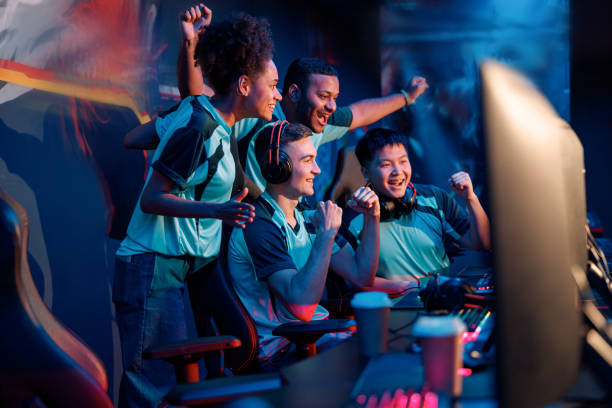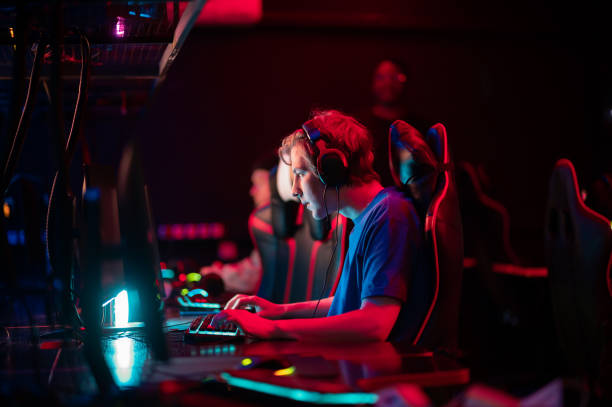The world of esports has exploded in popularity over the last decade, captivating millions of viewers globally. Central to this thriving ecosystem are the esports events—intense competitions where top players and teams clash for glory, prize money, and fan admiration. Whether you are a casual observer or a passionate esport enthusiast, understanding event coverage is vital to fully enjoy the excitement and drama of these competitions.
In this comprehensive blog post, we will explore the essential aspects of esports event coverage, such as detailed event schedules, common tournament formats, and memorable highlights from recent competitions. Whether you are looking to follow the next big tournament or simply want to deepen your knowledge about esports events, this guide will provide you with useful, SEO-optimized insights.
What is Esports Event Coverage?
Esports event coverage refers to the reporting and analysis of competitive gaming tournaments and matches. It involves providing detailed information before, during, and after an event to keep fans updated and engaged. This coverage includes:
- Schedules: Dates, times, and locations of matches.
- Formats: The structure and rules defining how the tournament is played.
- Highlights: Key moments, standout performances, and results recaps.
Effective event coverage enhances viewer experience by offering context, expert commentary, and real-time updates.
Understanding Esports Event Schedules
One of the fundamental aspects of following esports is staying on top of tournament schedules. Here’s what you need to know:
Types of Events
Esports tournaments range from small local competitions to massive international championships. Common event types include:
- Online qualifiers: Preliminary rounds held virtually to determine participants for offline events.
- Regional leagues: Competitions involving teams from specific geographic areas.
- Major Championships: The flagship events that typically feature the best teams worldwide, such as The International for Dota 2 or the League of Legends World Championship.
Components of a Typical Schedule
An esports' event schedule usually contains:
- Group Stage Dates: Where teams compete in round-robin or pool formats to determine who advances.
- Playoffs/Knockouts: Single or double-elimination brackets where teams face off to progress toward the final.
- Grand Finals: The concluding match or series determining the champion.
Schedules often include exact match times (adjusted for time zones), which are crucial for viewers wanting to watch live broadcasts.
How to Stay Updated
To never miss a match, fans can:
- Follow official tournament websites and social media channels.
- Use esports apps and calendars that aggregate schedules.
- Subscribe to YouTube and Twitch channels of popular esports broadcasters.
Popular Esports Tournament Formats Explained
Tournament format plays a key role in shaping the competitiveness and excitement of esports events. Let’s look at some of the most common formats used:
1. Round-Robin
In a round-robin, every team plays against every other team at least once. This format allows for fair competition by reducing randomness and providing multiple opportunities for teams to prove their skill.
- Pros: Fair, allows teams to recover from early losses.
- Cons: Can be time-consuming, especially with many participants.
2. Single Elimination
A straightforward knockout format where losing a match means immediate elimination from the tournament.
- Pros: Quick and decisive.
- Cons: Less forgiving, high pressure on teams.
3. Double Elimination
Teams have to lose twice before being eliminated. This format features a winners’ bracket and a losers’ bracket, giving teams a second chance.
- Pros: Balances fairness and excitement, allows for comeback stories.
- Cons: More complex and longer duration.
4. Swiss System
Teams play a fixed number of rounds against opponents with similar records, progressing based on wins and losses.
- Pros: Reduces rematches, efficient for larger groups.
- Cons: Less common in esports but offers a balanced competition.
5. Best-of Series
Matches are often played in Best-of-Three (Bo3), Best-of-Five (Bo5), or Best-of-Seven (Bo7) formats to reduce variance and ensure the better team wins.
Highlights from Recent Esports Competitions
Recent esports events have delivered exhilarating moments that showcase the skill, strategy, and drama that make competitive gaming so thrilling. Here are some highlights from popular tournaments:
The International 2023 (Dota 2)
One of the esports world’s most prestigious events, The International 2023 featured jaw-dropping plays and unexpected upsets. The winning team’s incredible synergy in the finals, along with high-stakes item plays, kept fans on the edge of their seats. The tournament’s prize pool shattered previous records, cementing its status as a landmark event.
League of Legends World Championship
The 2023 Worlds brought together elite teams from around the globe. The intense group stages went down to the wire, and the finals showcased strategic depth and individual brilliance. With millions tuning in live, the event underscored esports’ global reach.
Valorant Champions Tour
The Valorant Champions Tour Masters event offered electrifying moments with clutch plays and rapid-fire gunfights. Various teams debuted innovative tactics, and the event highlighted the rising popularity of tactical shooters in esports.
Overwatch League Finals
The Overwatch League Finals delivered spectacular team fights and role-switching strategies that kept the audience engaged. The grand finals match featured a nail-biting Best-of-Seven series that showcased the game’s evolving meta.
Tips for Following Esports Events Effectively
For readers who want to make their esports viewing experience optimal, here are some useful tips:
- Plan Your Time: Follow schedules and set reminders for matches.
- Engage with Communities: Join forums, Discord servers, or social media groups for live discussion.
- Watch Analyst Shows: Pre- and post-match analysis provides deeper insights into player strategies and tournament context.
- Follow Multiple Sources: Check official streams, third-party highlights, and fan commentary to get a rounded perspective.
- Try the Games: Playing the games yourself can enhance your appreciation of the skill and tactics on display.
How Event Coverage Helps the Esports Ecosystem
Comprehensive esports' event coverage benefits all stakeholders:
- Viewers gain real-time updates and enriching content.
- Players and Teams gain exposure and fan support.
- Organizers can reach wider audiences and boost event attendance.
- Sponsors and Advertisers find targeted engagement opportunities.
Good coverage builds anticipation, creates narratives, and helps esports grow as a mainstream entertainment form.
Conclusion
Esports event coverage is your gateway to fully experiencing the excitement of competitive gaming. From detailed schedules and tournament formats to thrilling highlights and expert analysis, staying informed enhances your engagement and enjoyment. As esports continues to grow globally, the significance of thorough, timely coverage will only increase, connecting fans and players like never before.
Whether you’re tuning in to watch your favorite team compete or exploring esports for the first time, understanding event coverage empowers you to stay ahead of the game. Bookmark schedules, dive into different tournament formats, and relish the unforgettable moments that only esports can deliver. Stay tuned for the next big event, and get ready to witness the future of competitive gaming unfold!



